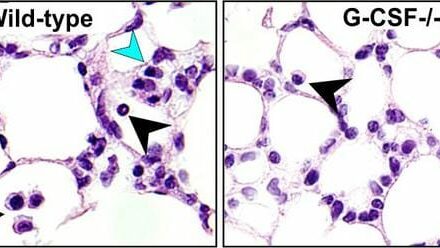New research indicates that postnatal antibiotic exposure, not associated with additional respiratory infections, is associated with childhood asthma.
RT’s Three Key Takeaways
- Increased Asthma Risk – Early-life antibiotic exposure for maternal indications (not due to infant infections) is linked to a higher risk of childhood asthma, with a relative risk of 1.3.
- Related Respiratory Issues – Children exposed to antibiotics early in life also had higher rates of short-acting beta-agonist (SABA) use and allergic rhinitis, indicating broader respiratory effects.
- Independent of Other Factors – The study controlled for key variables like birth weight, maternal asthma, socioeconomic status, and delivery method, strengthening the case for a direct link between antibiotic exposure and asthma risk.
Early-life exposure to antibiotics can be a risk factor for childhood asthma, according to new research being presented at the 2025 AAAAI / WAO Joint Congress.
“We aimed to further explore the association between early-life antibiotic exposure and childhood asthma while mitigating the potential contributions by focusing on very early postnatal antibiotic exposure for maternal indications in otherwise healthy infants. Our results demonstrate that postnatal antibiotic therapy for maternal indication, not confounded by infants’ infections, was associated with an increased childhood asthma risk,” said lead author Eyal Kristal, MD.
In this study, researchers screened the electronic medical records of 14,807 healthy full-term children born to mothers with positive Group B Streptococcus vaginal culture between 2006 – 2018, with 311 children having received antibiotic treatment. Excluding children with postnatal respiratory symptoms, pneumonia or a positive blood/cerebrospinal fluid (CSF) culture, researchers found that antibiotic exposure was associated with higher risk of asthma both in a regression model (RR=1.3, 95% CI 1.04-1.6, p=0.018) and in the propensity model (RR=1.31, 95% CI 1.01-1.69 p=0.039) of the study. The study also found that short-acting beta-agonists (SABA) and allergic rhinitis were associated with antibiotic therapy.
Controlling for ethnicity, mode of delivery, birth weight, gender, maternal asthma, maternal antibiotic use during pregnancy and socioeconomic status, the study determined that postnatal antibiotic therapy for maternal indication, that is not confounded by an infant’s infections, was associated with an increased risk childhood asthma. While additional research will be valuable, this insight can lead to better treatment considerations during pregnancies and support better patient care.










